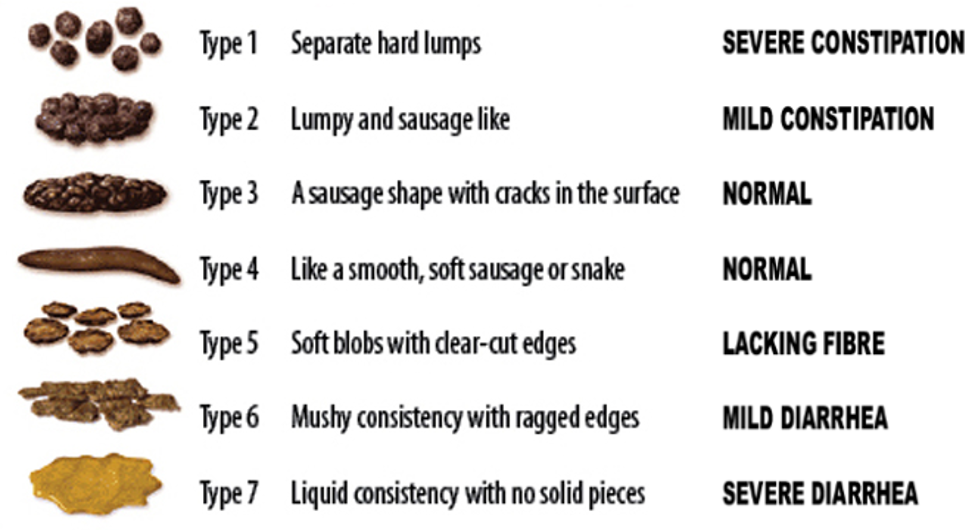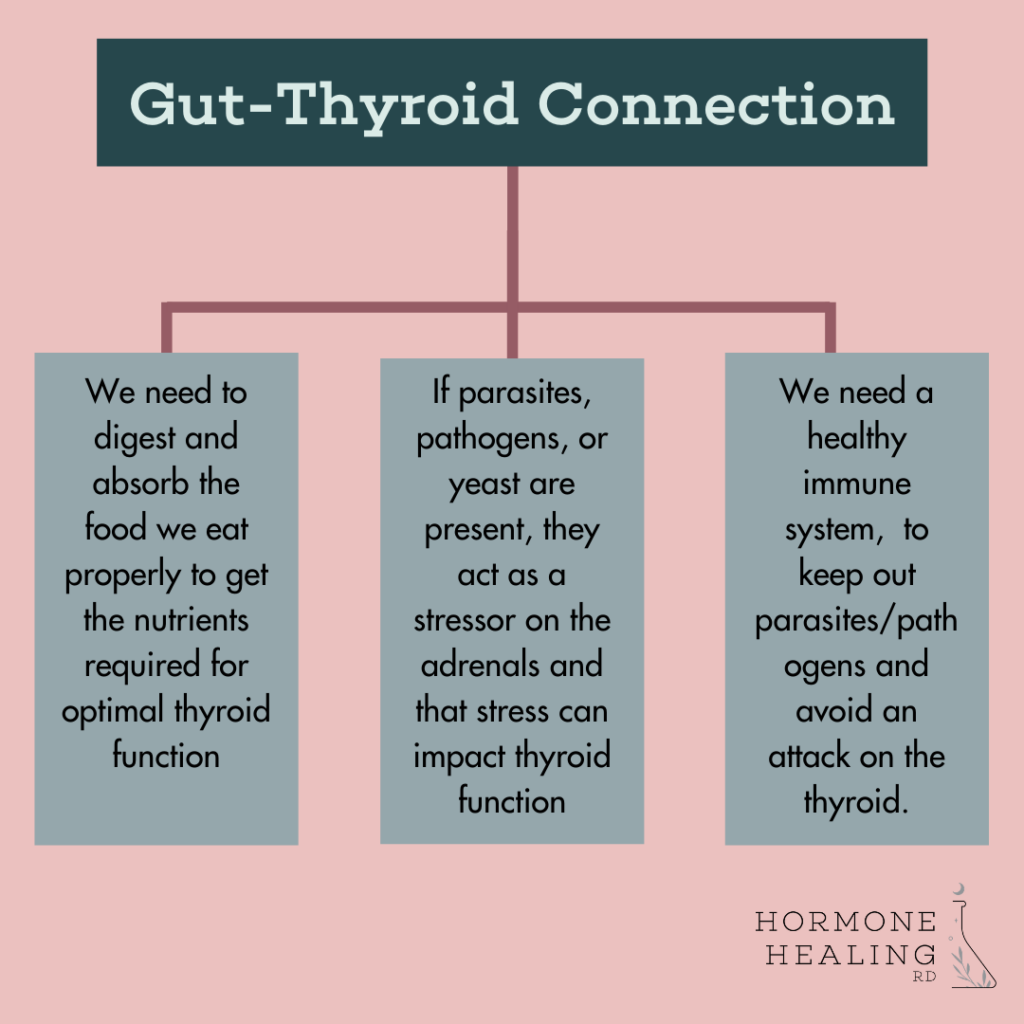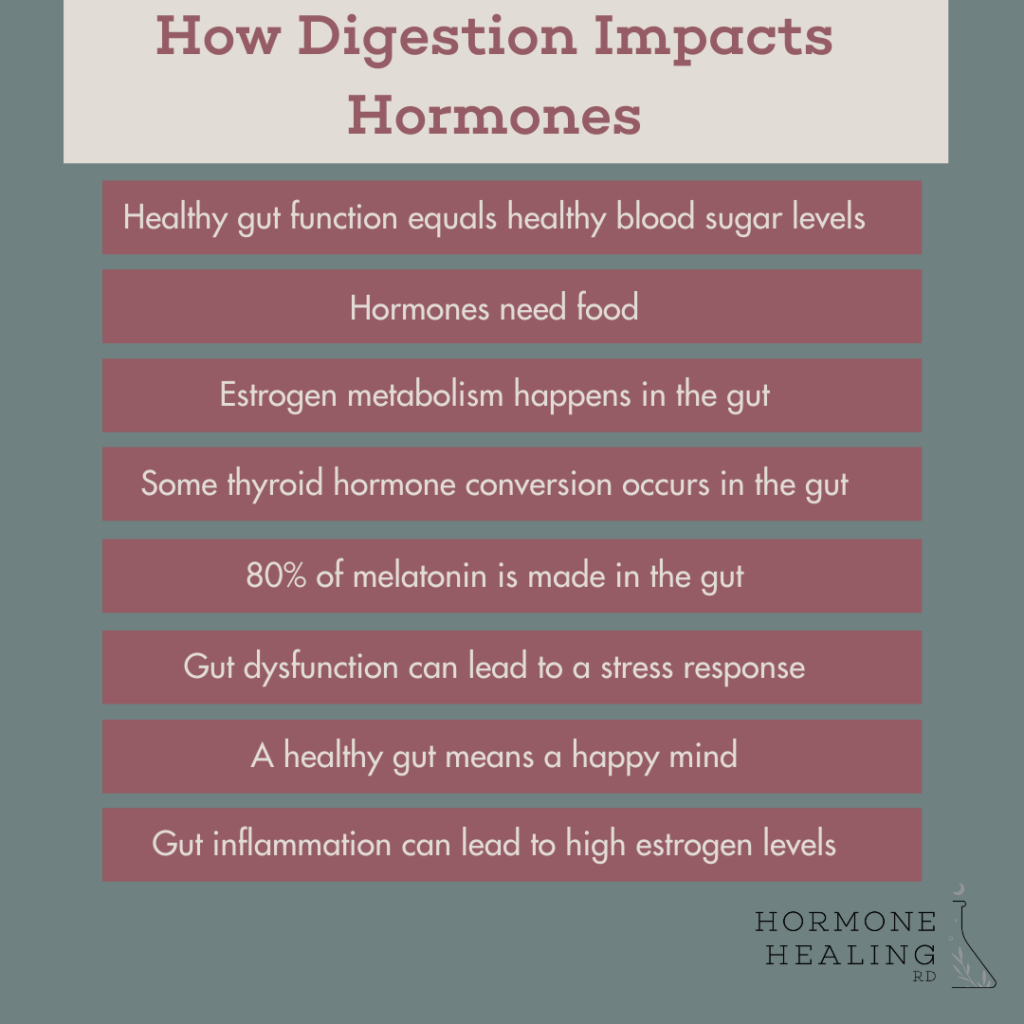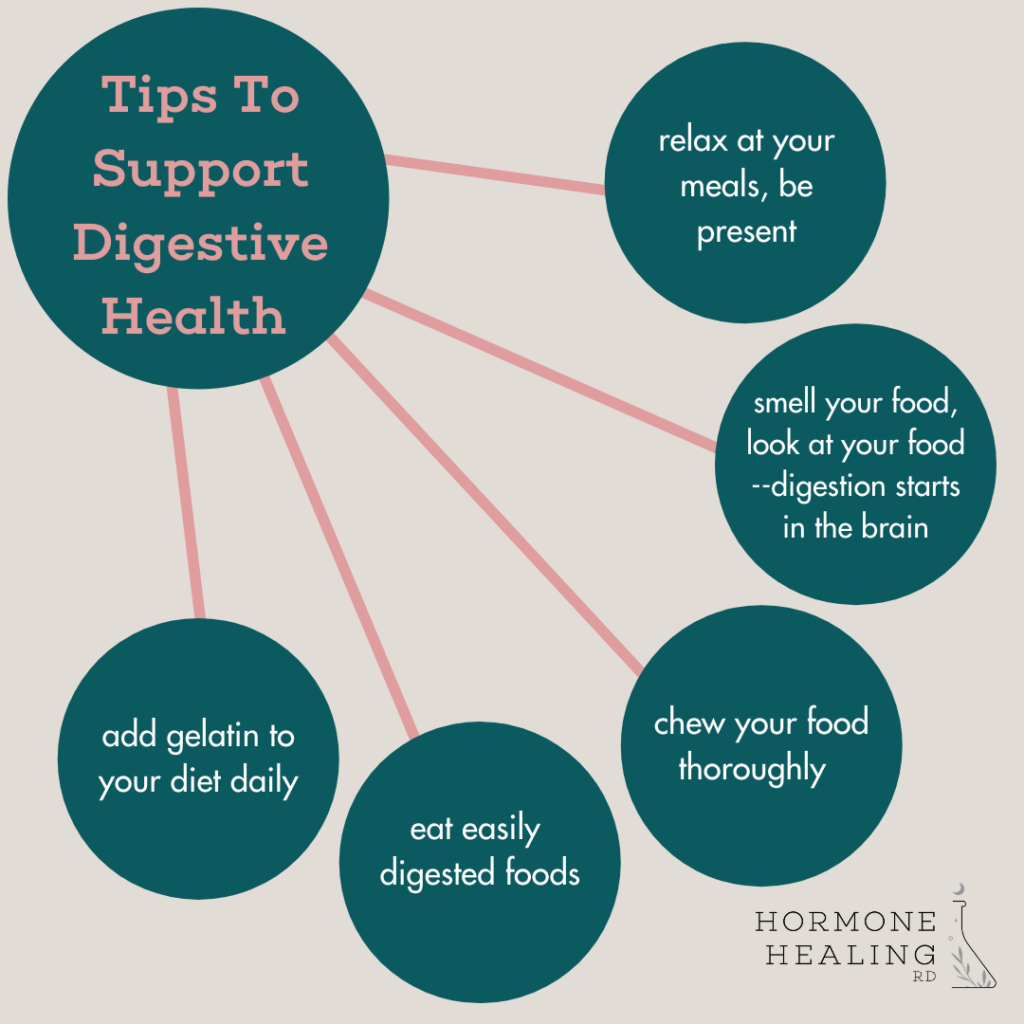I often get women that come to me wanting hormone testing, and I totally understand why. They are tired, have painful/heavy periods, irregular cycles, endometriosis, PCOS, etc., which are all related to hormones. BUT, and that’s a big but, we need to think about what is causing these hormone imbalances. This is where the digestive system comes in. If you have an issue in your gut, it’s nearly impossible to heal hormones long-term.
How to achieve healthier hormones?
Ensuring proper digestive health is a key part of this. Why? Our digestive systems impact our hormones in so many more ways than many of us. First things first, we need to make sure we are pooping every day. We poop out our toxins and estrogen. If we are not pooping at least once a day, we are likely recycling estrogen and toxins into the body. This can raise estrogen levels and increase the burden on our lives, which we need to be working correctly for hormone health. Healthy stool patterns are also a great view of what is happening inside of our bodies. A regular, consistent stool can show us that we are digesting our food properly and absorbing nutrients and fluid from the food we eat. Stool that is too loose or too hard happens too frequently or not frequently enough, and stool that is difficult to pass can all be indicators of deeper systemic issues that our bodies are trying to tell us.
When it comes to poop, I love (no, seriously – I love it) to share the Bristol Stool Chart with my clients. This is a great guide into what stool should look like and helps us to describe what stool does look like to identify potential problems better.

How does your gut health impact your thyroid health?
The gut-thyroid connection is often a vicious cycle since hypothyroidism causes poor digestion, contributing to poor thyroid function. The main ways in which your gut health can impact your thyroid health are:
90% of individuals with hypothyroidism have an autoimmune condition called Hashimoto’s, meaning their immune system is the root of their thyroid condition. Can you guess what affects your immune system? YOUR GUT! An essential step in any thyroid condition is to address your gut health.

How does digestion affect hormones?
All poop aside, there are eight major ways that our digestive function and overall gut health impact our hormones. Each of these is equally as important, and making sure that our gut functions as a whole is the key to hormonal balance.

How can I support my digestive system through nutrition?
Nutrition is a great way to reduce stress, but lack thereof can create a stress response within the body. In practice, I think focusing on your nutrition first can help you reduce stressors and move the needle forward in all other areas. Supportive nutrition includes nourishing foods but also eating enough food in balanced amounts. Our bodies require a mix of protein, carbs, and fat to function optimally. They also need micronutrients (vitamins and minerals) for specific processes to be thoroughly carried out. For example, minerals work as enzymes in the body, meaning they kick off reactions. Magnesium is essential for the body’s ability to respond to stress. It’s the first mineral used up during the stress response because it is kicking off that reaction. That is why many people feel better when they take magnesium. Some people feel worse because they need magnesium, and all of the responses it kicks off have been slowed down and are starting to turn back on.
The other big piece of the nutrition puzzle is having adequate digestion. If we cannot make enough stomach acid, bile, and digestive enzymes, we can’t properly break down and absorb our food. This creates stress and compensation within the body and leads to health issues down the road. Hopefully, you can recognize the importance of nutrition. It’s a great first place to start.

Your gut may not be the first place you think to look when it comes to healing your hormone imbalances, but the gut is about more than just food. Your digestive system is connected to so much more and is a main driving force of health in your body. Figuring out what is causing your personal issues is important when it comes to working with a healthcare professional. That’s why I use the GI Map and the HTMA with clients so we can get to the root of hormone imbalances and make sure we are covering ALL of our bases.
For more ways to further heal your metabolism and hormones, don’t forget to check out our Master Your Minerals course!
